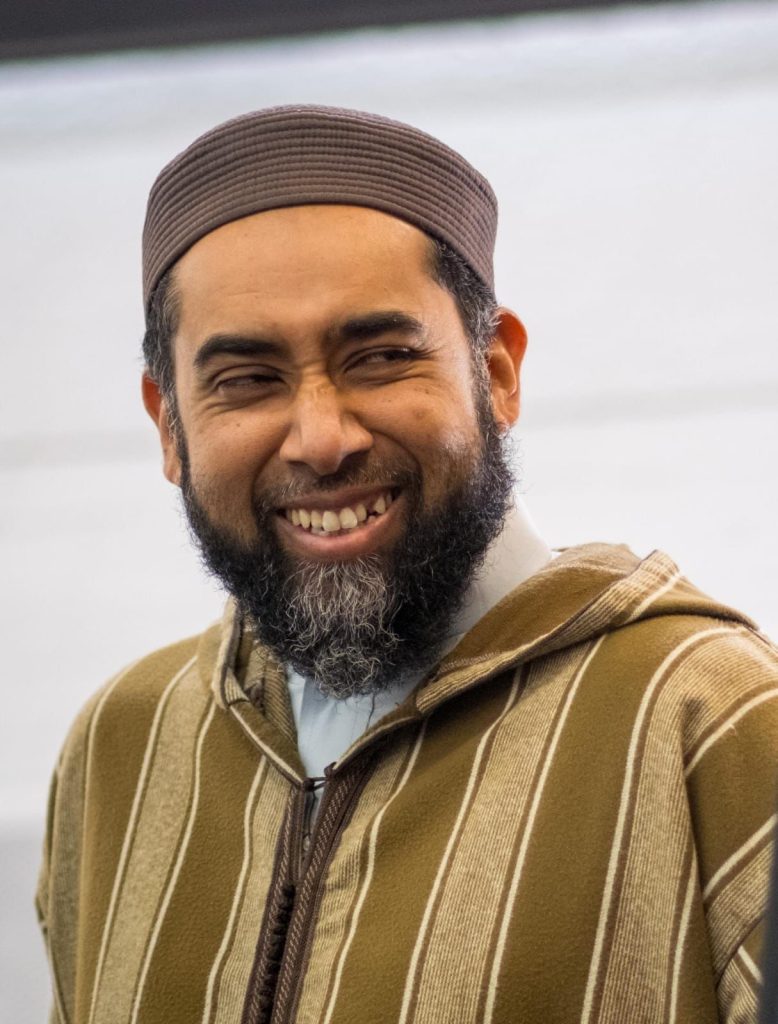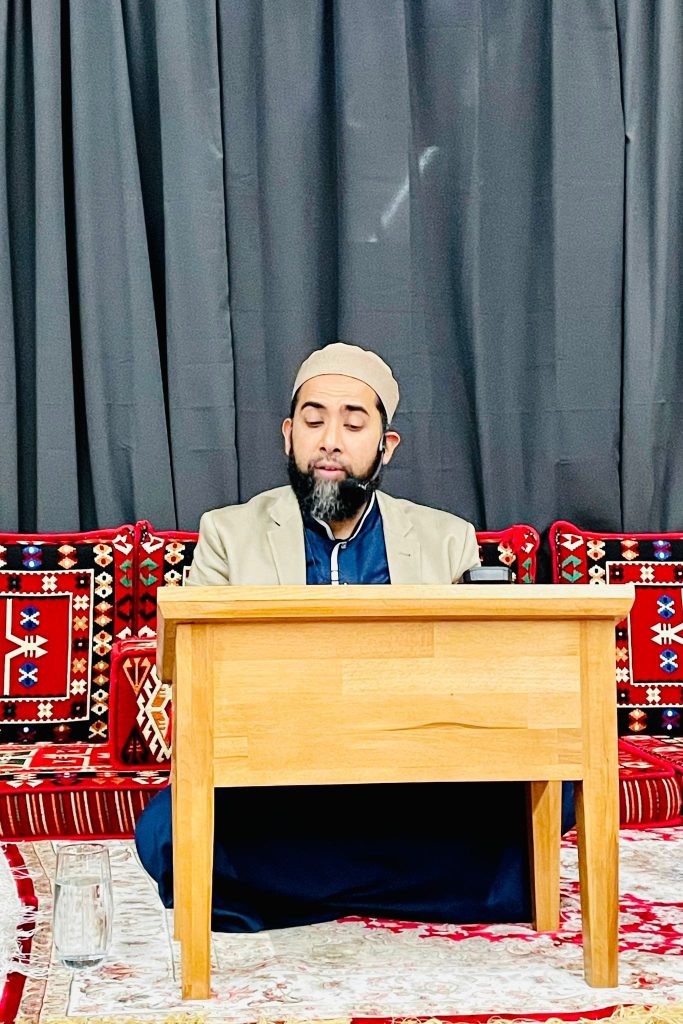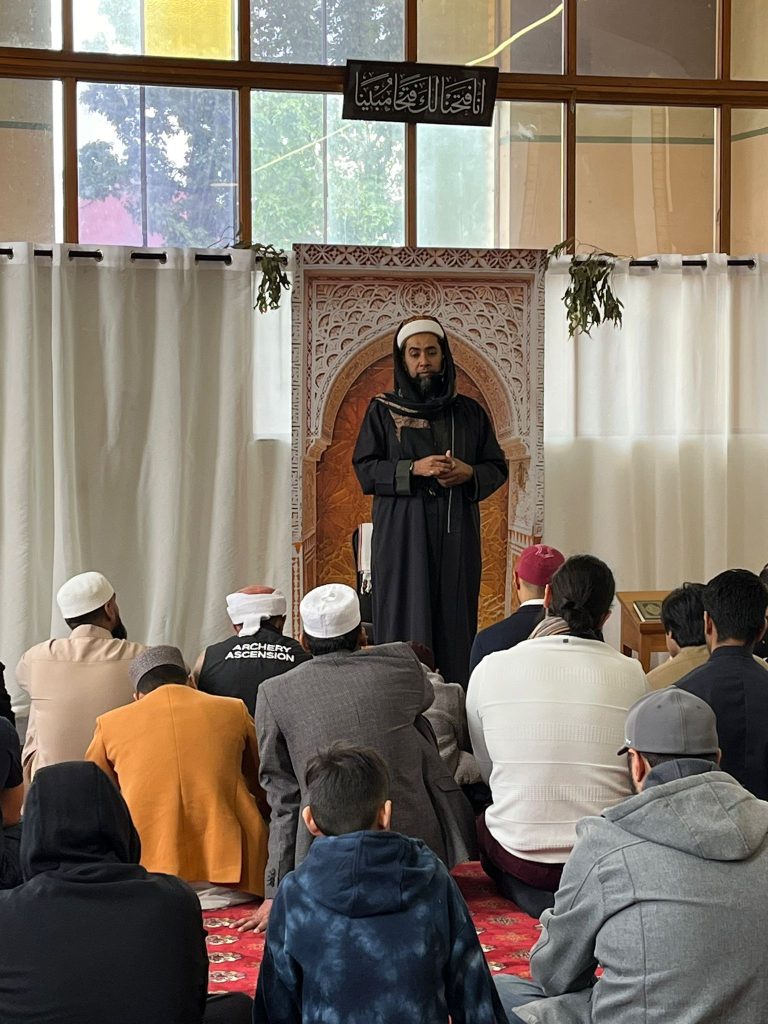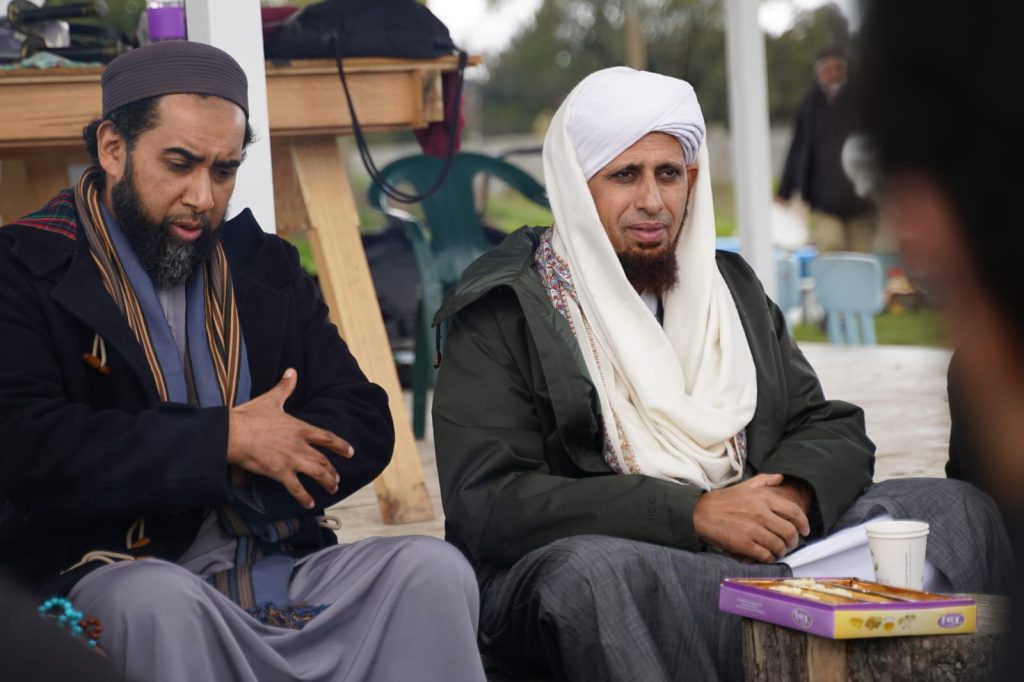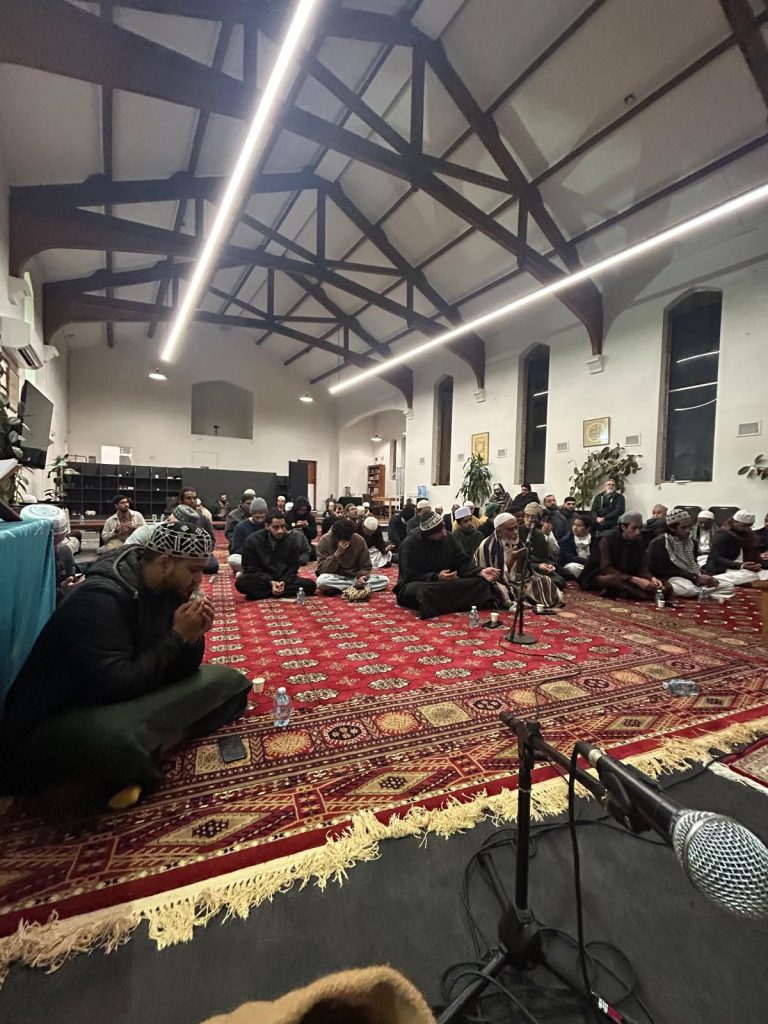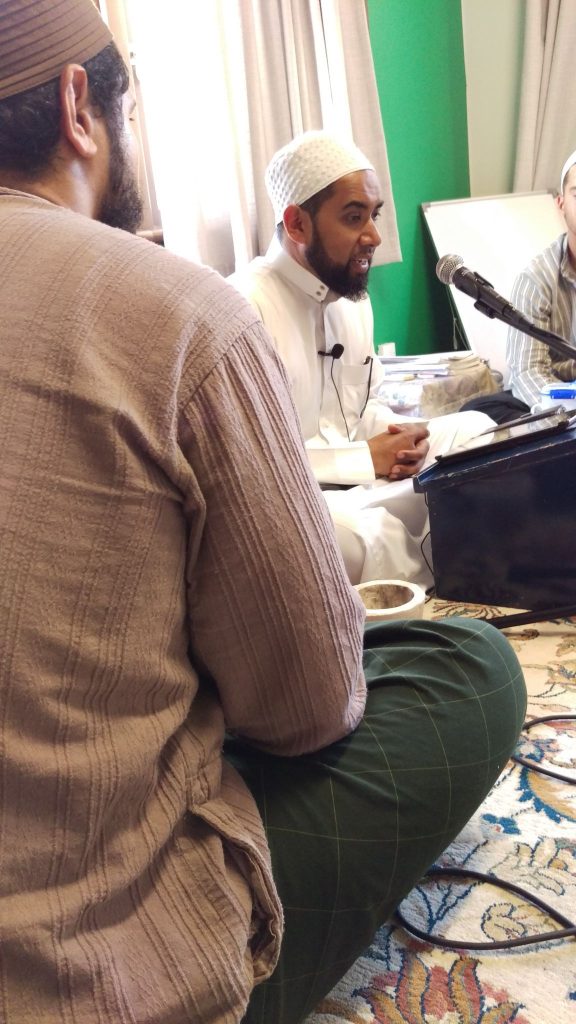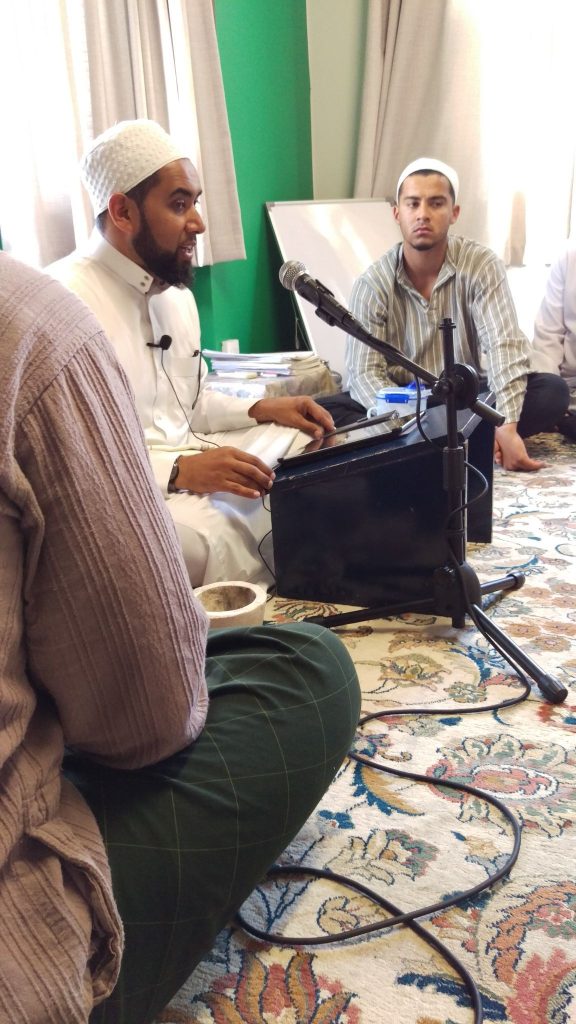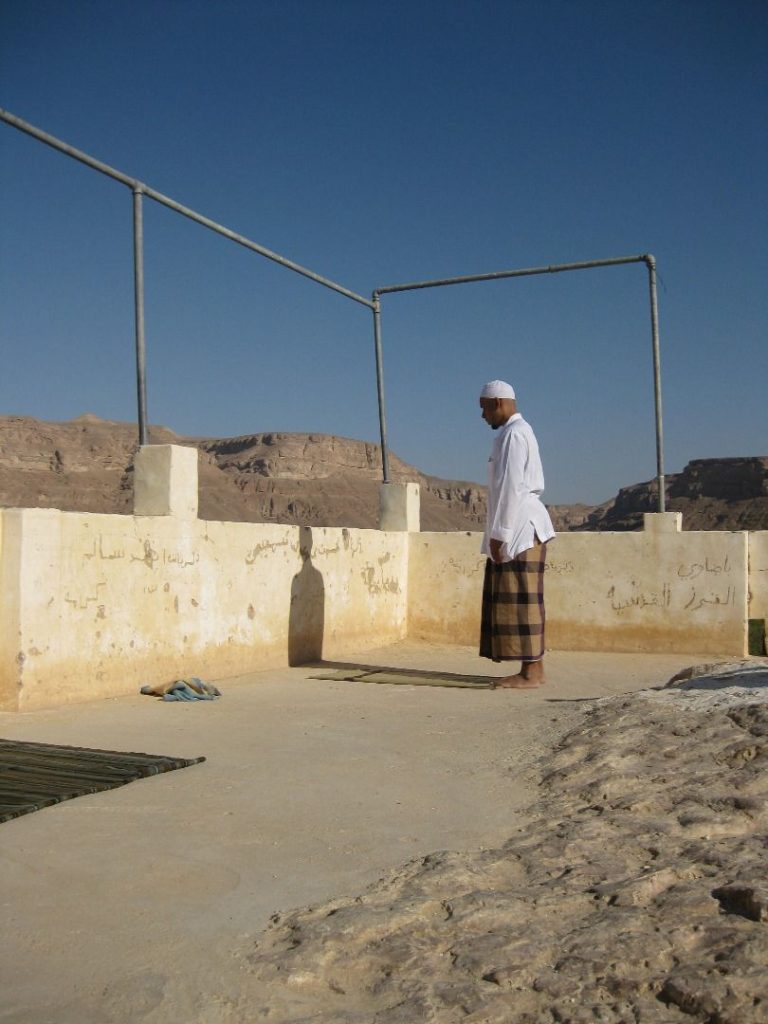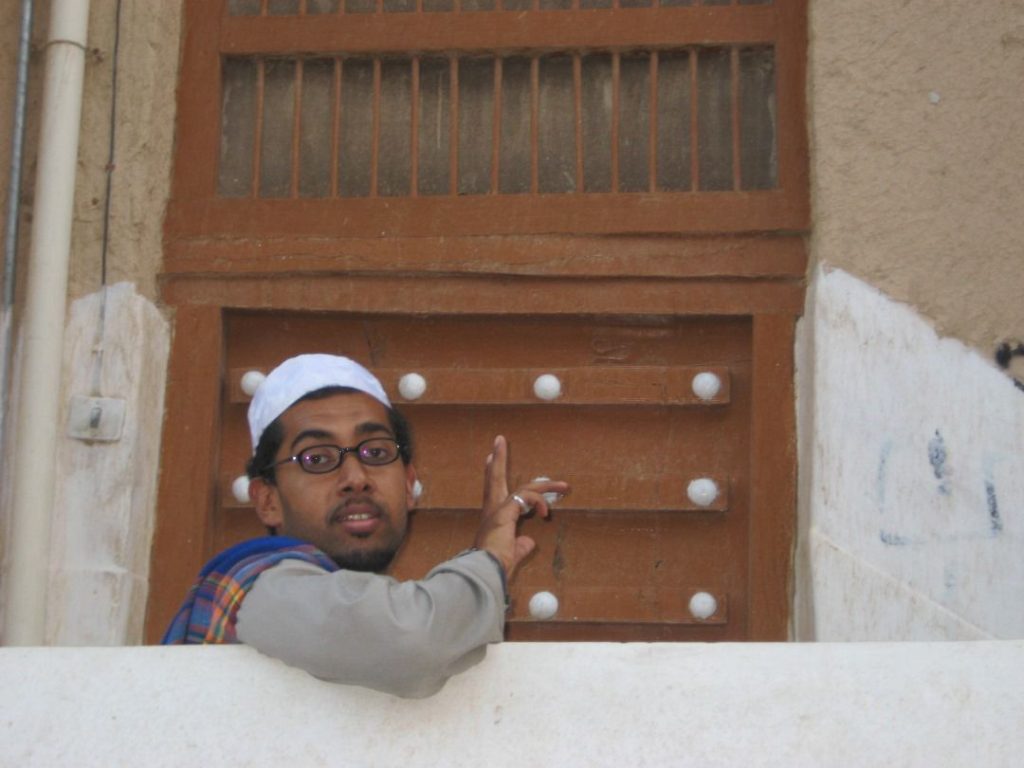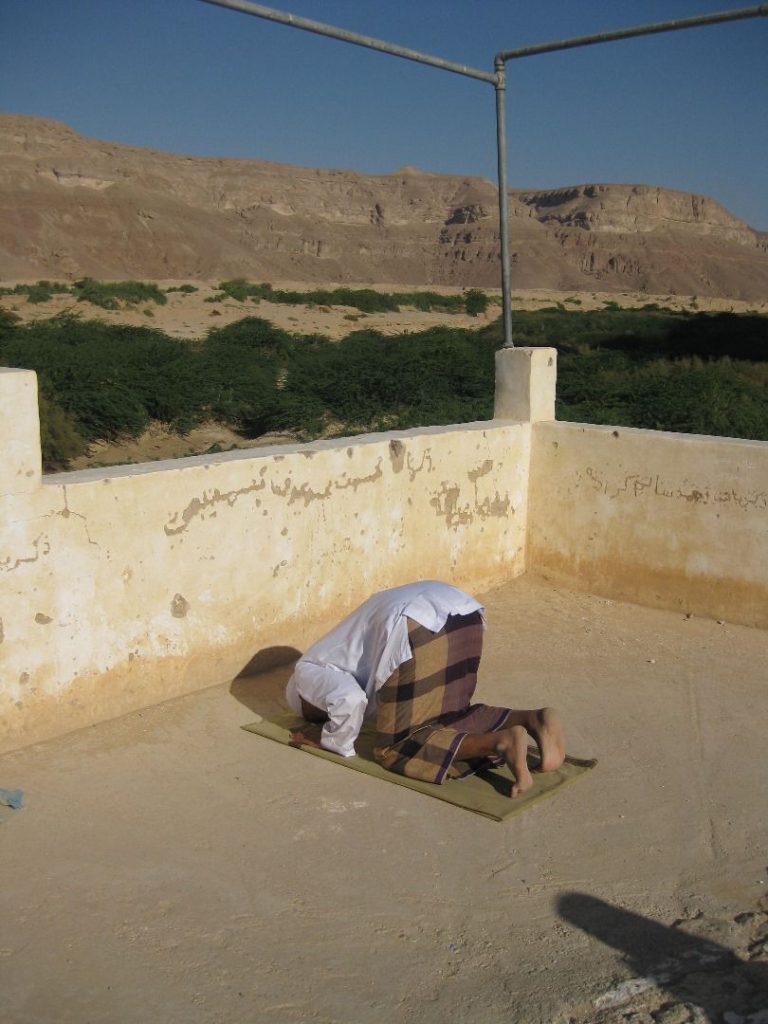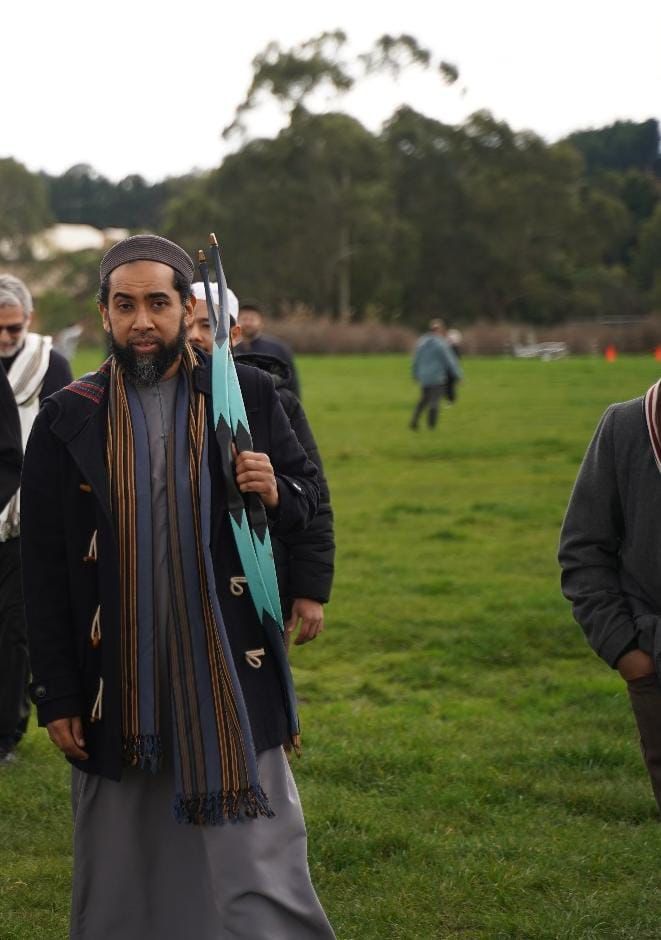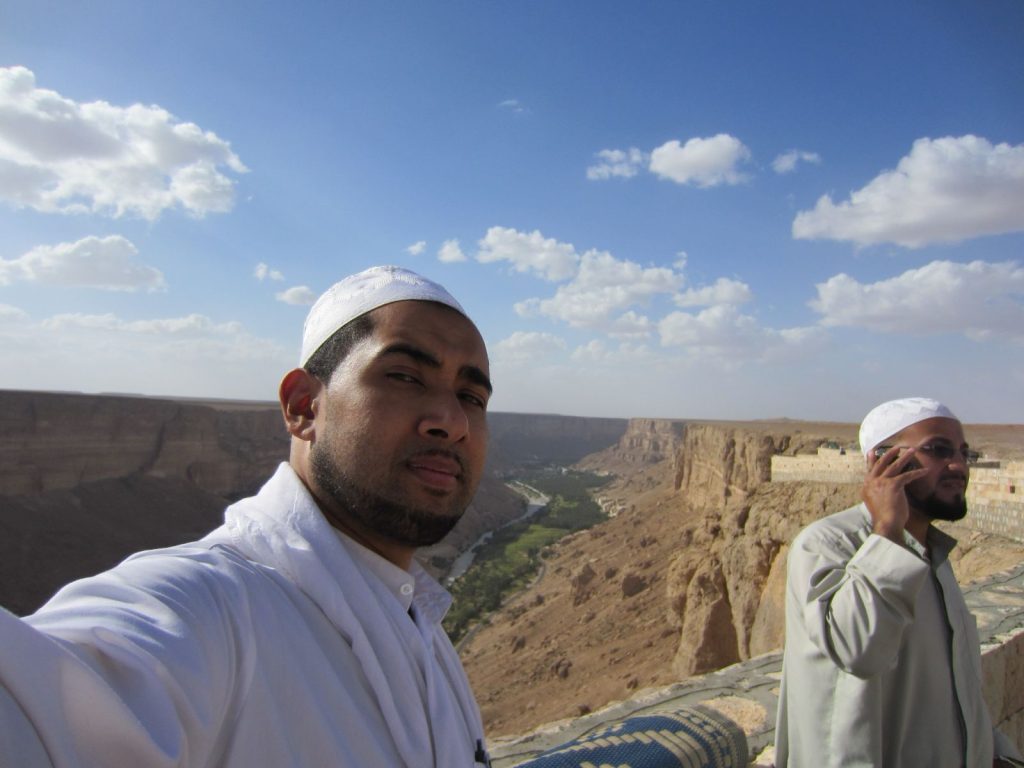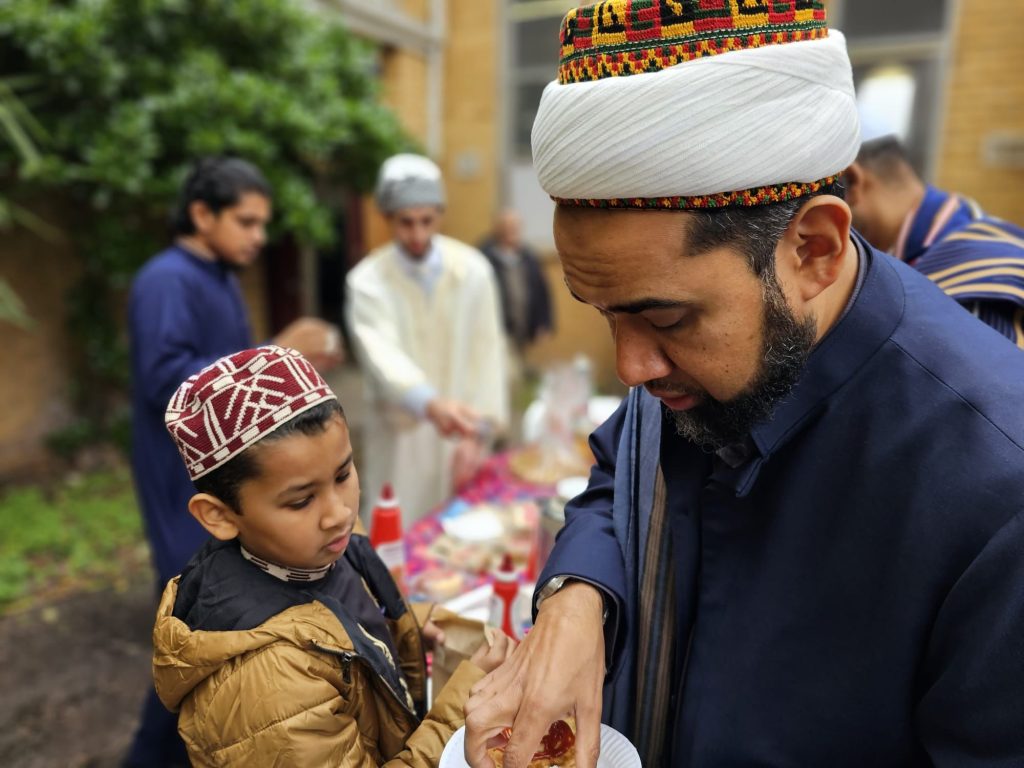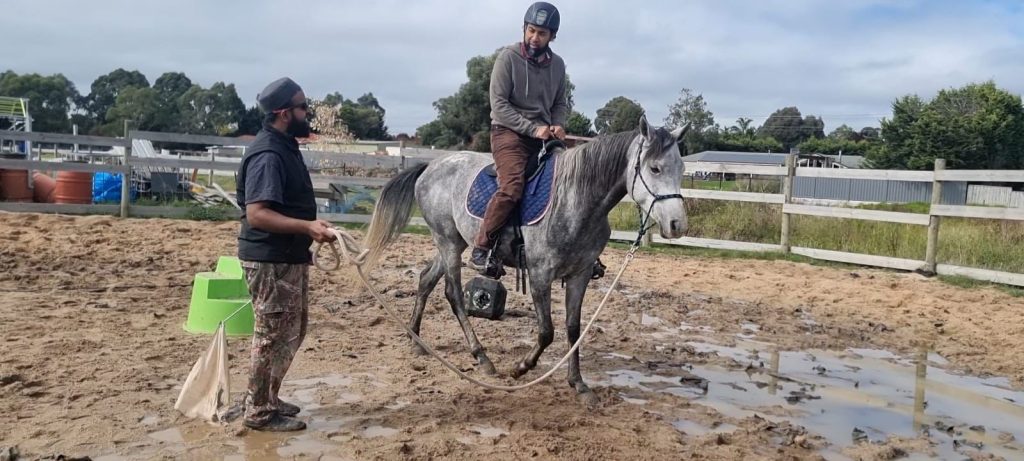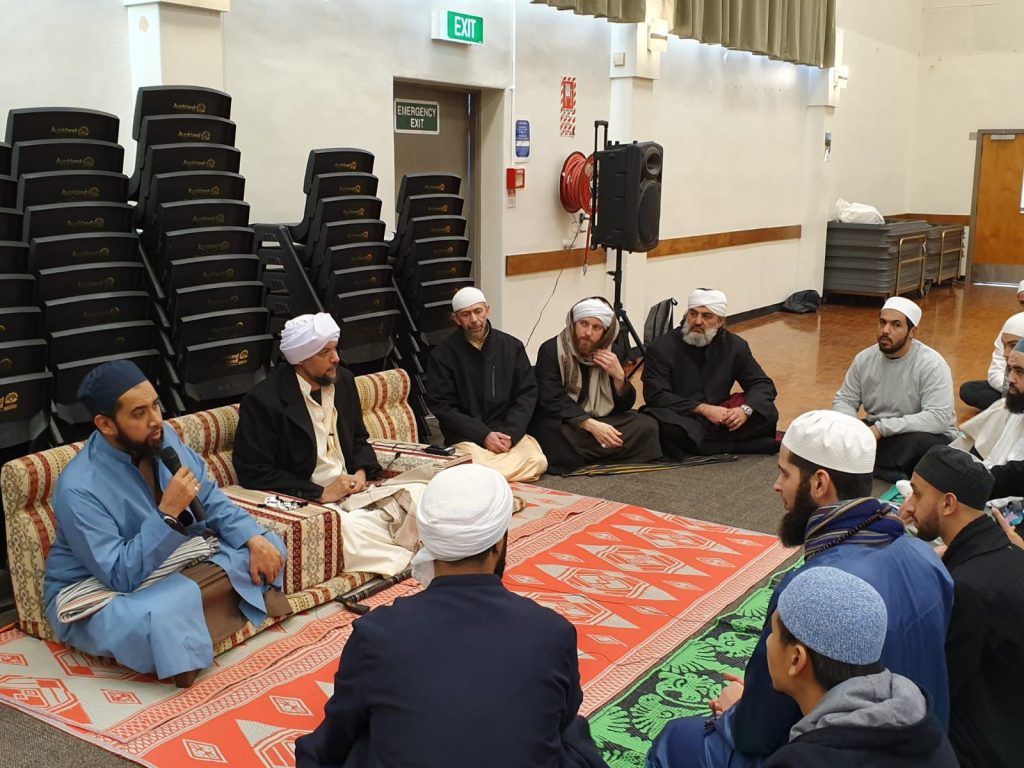This Saturday marks one year since the passing of Sayid Salim Mauladawila. The Melbourne community, along with brothers from across the region, gathered to remember Allah, pray for our dear friend and teacher, and reflect on his legacy.
Below are some reflections from his friends and moments from the gathering.
—
Reflection from Sheikh Ibraheem Abdullah
بسم الله الرحمن الرحيم
A few reflections on the life of our dear, respected Sayyed and Sheikh Salem bin Ahmed Mauladawila. May Allah سبحانه وتعالى encompass him in His mercy and elevate him to the highest levels of Paradise.
I first met Sayyed Ahmed in 2004 when he arrived from Melbourne to Tarim. Our first meeting took place during the Mawlid in Dar al-Mustafa. After the conclusion of the Mawlid, I heard that there was an Australian present. At that time, there were not many Australians in Dar al-Mustafa or Tarim. So, I approached him. From that moment, we discovered many threads linking us together—one of them being our fathers. In the 1970s, in Melbourne, our fathers would be among the two, three, or sometimes four people who prayed Jumu’ah and Salah together in the only masjid in Melbourne at the time, which was Preston Masjid. People were not attending Jumu’ah regularly, and so they would gather and perform their prayers together. الحمد لله, those ties were established between them.
Sayyed Ahmed رحمه الله—the father of our dearly beloved Sayyed Salem—remained close to my father and my family, and likewise us to them. سبحان الله, I was unaware of this connection until it was rekindled in Tarim. الحمد لله.
From that moment until the day of his passing, Sayyed Salem remained a prominent feature in my personal life. He was someone I consistently relied upon for counsel and guidance—in my personal affairs and in matters of dawah. In his gatherings, in his company, his concern was always about pushing the dawah forward, about connecting hearts.
At times when I found myself frustrated with situations or circumstances, Sayyed Salem was always there to smooth things over—to offer gentle, subtle advice, like a soothing balm. سبحان الله. I do not recall a single moment, in over twenty years of companionship, where he raised his voice or expressed anger. سبحان الله, sometimes you might forget he was present—until the moment you needed him, and there he would be, like a brother. A brother always ready, always available to provide counsel.
الحمد لله, Sayyed Salem has had a profound effect on my life and on the direction my life has taken here in Australia since my return. He provided me guidance, direction, and ultimately, he planted the seeds and cultivated the ground that led to my eventual travel to Mareeba. Before I had even visited that community, he had already visited, establishing connections and building relationships. The barakah of all the work currently happening in Mareeba—the revival of that community, the school, the people moving into that town—ما شاء الله, all of that was due to Sayyed Salem. He drew out the vision, the plan. الحمد لله.
May Allah سبحانه وتعالى accept it from him.
There is so much that could be said. Many encounters and moments in which Sayyed Salem displayed, embodied, and internalized the noble character of رسول الله ﷺ. Whenever I remember him, whenever I attempt to encapsulate the various facets of his personality, I remember the verse from the Qur’an:
وَعِبَادُ ٱلرَّحْمَٰنِ ٱلَّذِينَ يَمْشُونَ عَلَى ٱلْأَرْضِ هَوْنًا وَإِذَا خَاطَبَهُمُ ٱلْجَٰهِلُونَ قَالُوا۟ سَلَـٰمًۭا
“And the servants of the Most Merciful are those who walk gently upon the earth, and when the ignorant address them, they say: Peace.” (Surah Al-Furqan 25:63)
They do not disturb. They do not argue. They are not here for conflict. Rather, wherever they are, they carry salaam—they are tranquil, peaceful, serene. They understand the purpose for which they have been sent forward.
This was Sayyed Salem. It was fitting that “Salem” was part of his name. If he encountered conflict, he knew how to navigate around it—either by gently avoiding it or by bringing situations back into balance and harmony. He had a way of averting the worst and turning matters toward something good or beneficial. Or, when necessary, he would simply leave things without comment.
I later discovered that many times, he himself was facing hardships and challenges—yet he never gave any indication. He would counsel me through situations he himself was enduring, without ever letting it show. That is the mark of an expansive, contented soul: one who does not wish to burden others with their struggles. سبحان الله.
With regards to Sayyed Salem’s passing, I believe it was a clear sign from Allah سبحانه وتعالى—a sign to those who were present that his was a contented soul, a soul beloved to Allah. This is significant, because it gives us a compass. It gives us an understanding of what Allah سبحانه وتعالى seeks in His servant, especially in these difficult times: a life lived in a way pleasing to Him, an exemplary life, a life lived in the shade of the Prophetic tradition.
Sayyed Salem spent approximately ten days in hospital. On the day of Ashura, while waking for suhoor to fast, he suffered a heart attack. It was Allah’s decree that he was taken to hospital and entered into a coma for the next ten days, after his brain suffered severe trauma. The doctors gave a bleak prognosis, expecting no recovery or return to consciousness.
During those ten days, the hospital transformed into a masjid—a musalla, a madrasa, a zawiya, a place of dhikr, dua, and Qur’an recitation. Every night, a khatam of Qur’an would be completed, and the supplication of Imam Zayn al-Abidin would be recited. Food was distributed. Brothers attended day after day. Without doubt, this was Allah’s honoring of Sayyed Salem. The hospital staff at a prestigious hospital allowed us to stay well beyond permitted hours. We were supposed to leave by eight, yet we stayed until ten, sometimes ten-thirty at night, undisturbed. It felt as though the hospital itself was at our service, and the staff in khidma for us—all because we were in khidma of Sayyed Salem, a righteous and beloved soul. Everyone who attended could feel the blessing, the barakah, the light of those gatherings.
On the Thursday before his passing, the doctors told us he might live another week. One of his brothers said to me, “I feel as though Allah is keeping him in this state until Jumu’ah.” سبحان الله, it was at the exact moment of the Adhan of Jumu’ah that Allah سبحانه وتعالى chose to receive the soul of Sayyed Salem.
At that moment, his father and mother—who had been in dhikr throughout—displayed incredible submission and surrender to the decree of Allah, despite the immense difficulty. This, too, can only be attributed to the character inherited from the family of the Prophet ﷺ.
As we stood in the room at the moment of his passing, the atmosphere was indescribable. It felt as though the ملائكة were present, shoulder to shoulder, filling the room.
At that moment, Habib Ahmed—the father of dear Sayyed Salem—requested that we make dua. We performed the talqeen of shahada and recited dua, asking Allah سبحانه وتعالى to make Sayyed Salem’s passing a means of guidance (hidaya) in these lands, to grant the family solace, and to reveal to us a portion of the unseen blessings He had granted him.
Just fifteen minutes later, as the nurses prepared his body, the head nurse approached us. She asked detailed questions about the etiquettes of handling the body according to Islam. As I explained to her the etiquettes, and about the soul and its journey, she was visibly moved. She listened intently as we spoke of Allah, of His existence, and she acknowledged it. We asked her if she believed. She said, “Yes.”
We spoke about the Prophets, about Prophet Muhammad ﷺ, and about the Last Day. She affirmed belief in all of these. In a state of astonishment, we led her in the shahada, which she repeated three times. She felt great peace at having done so.
She entered the room as a Muslim. She prepared Sayyed Salem’s body with utmost etiquette and adab—not exposing him, nor allowing anyone else to. She handed his body to a hafidh of Qur’an, who carried him.
His ghusl was performed the next day in the presence of a large gathering from many communities in Melbourne. It was one of the most profound burials I’ve witnessed. One of the senior mashayikh of the region remarked that he had never seen a body prepared and buried as Sayyed Salem was.
This was, without doubt, Allah سبحانه وتعالى’s way of honoring him—revealing part of His mercy and blessing upon Sayyed Salem and his family.
May Allah سبحانه وتعالى elevate him, grant him the highest of stations, and allow us to live his legacy.
اللهم آمين
—
Reflection from Sheikh Ahmad Shaist
I never saw Salim in Australia, so I didn’t witness him in action as a da’i. But I knew him as a friend.
A few months after I arrived in Tarim, I fell ill and had to go to the local clinic, where they put me on a drip. I remember Salim showing up unexpectedly, bringing me the things I needed. I’m not even sure I had told him I was unwell—he just appeared. That moment was the first time in Tarim I felt I had a true friend. I realised then that he wasn’t just an acquaintance.
He also looked after my brother when he came to Tarim, treating him like his own. Salim would always make time for you if you needed to talk, and he was a remarkably good listener. You could tell that he genuinely cared when someone was going through hardship. He had a deep empathy and warmth that made you feel safe to open up.
One of the things that always makes me smile when I remember him was his quirkiness—his unconventional sense of taste and humour. Not everyone could understand it, but for those who did, it was endearing. That same quality gave him perspectives on things that more conventional minds might never consider.
Most of the stories I remember are personal—perhaps not suited to a public gathering—but I was honoured that he called me his friend, as I did him.
I was not surprised to hear of the miracles and outpouring of emotions and tawba that took place after his heart attack and death. Salim was someone who left his mark with his state, in his humility, in his silence. And only when he is gone do you begin to realise what you had.
The last message I received from him was after one of our neighbours in Tarim passed away. He simply wrote:
عظم الله أجركم
It was as if he was consoling me in advance.
—
Reflection from Sheikh Muammar
I first met Salim in 2009, not long after my family and I arrived in Tarim, Yemen. We were new, disoriented, and trying to find our footing in unfamiliar surroundings. Salim was one of the first to greet us, and from that moment, something just clicked. He didn’t just say Salaam and move on; he stayed. He showed me around, answered questions I didn’t know to ask, and in quiet, consistent ways, helped us feel more at home. What started as a simple introduction soon became one of the most meaningful friendships of my life.
Over the next seven years, we shared so much. We visited sacred places and sat together at the feet of scholars. Salim would always tell me about special events, gatherings, and scholars, and we would seek them together. One of the most memorable times was when he joined our family on the trip to the Do’an valley.
What drew people to him wasn’t just what he did; it was who he was. Gentle, humble, warm-hearted, and endlessly kind, Salim had a way of making everyone feel comfortable. He gave his time freely, never seeking praise, always extending a hand to others without a second thought.
He possessed quiet strength. He was blessed with a presence that somehow made everything feel okay. Salim didn’t need to speak much to say a lot. He was the kind of person who naturally brought people together, the kind who made rooms feel lighter just by being in them. His humility was disarming, his sincerity rare. Salim is one of those people whose passing leaves a huge emptiness in people’s hearts. He’s not someone who can be replaced. And I will always be grateful to Allah for being blessed with his friendship.
May Allah unite us with our beloved Salim in the highest levels of Jannah. Ameen.
